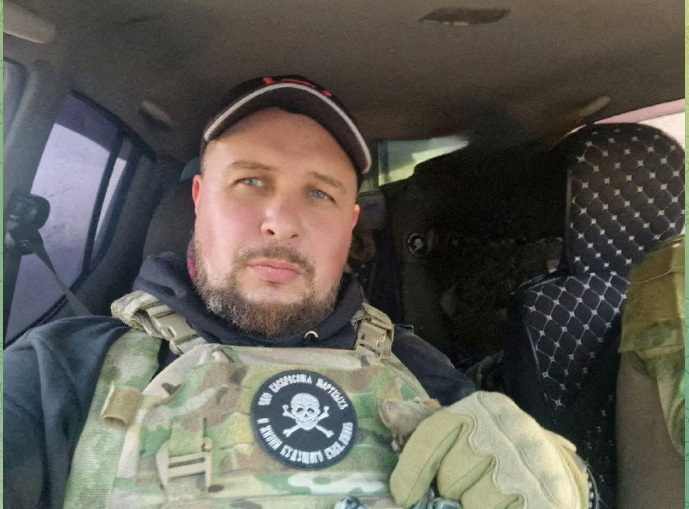Bomb kills Russian war blogger, injures 25 in St Petersburg cafe

Well-known Russian military blogger Vladlen Tatarsky was killed by a bomb blast in a St Petersburg cafe on Sunday in what appeared to be the second assassination on Russian soil of a figure closely associated with the war in Ukraine.
Russia's state Investigative Committee said it had opened a murder investigation. St Petersburg's governor said that 25 people were injured and 19 of them were being treated in hospital.
It was not immediately known who was behind the killing. The head of Russia's Wagner mercenary group, Yevgeny Prigozhin, said on Sunday he would "not blame the Kyiv regime" for it.
But another leading Russian official pointed the finger at Ukraine, without providing evidence. A Ukrainian presidential adviser said "domestic terrorism" was breaking out in Russia.
Russia's Foreign Ministry made no accusations of involvement in the attack, but said silence in Western capitals exposed hypocrisy over expressions of concern for journalists.
Tatarsky, whose real name was Maxim Fomin, had more than 560,000 followers on Telegram and was one of the most prominent of the military bloggers who have championed Russia's war effort in Ukraine while often criticizing the army top brass.
"We'll defeat everyone, we'll kill everyone, we'll rob everyone we need to. Everything will be as we like it," he was shown saying in a video last September at a Kremlin ceremony in which President Vladimir Putin claimed four partly occupied regions of Ukraine as Russian territory - a move rejected as illegal by most countries.
TASS news agency quoted an unnamed source as saying the bomb was hidden in a miniature statue that was handed to Tatarsky as he addressed a group of people in the cafe.
Mash, a Telegram channel with links to Russian law enforcement, posted a video that appeared to show Tatarsky, microphone in hand, being presented with a statuette of a helmeted soldier. It said the explosion happened minutes later.
Prigozhin said that the cafe previously belonged to him, but he has since given it to "patriotic" activists who have been holding meetings there.
Reuters was not able to independently confirm that. Denis Pushilin, the Moscow-installed leader of the part of Ukraine's Donetsk province that is occupied by Russia, suggested publicly that Ukraine was to blame.
"He was killed vilely. Terrorists cannot do otherwise. The Kyiv regime is a terrorist regime. It needs to be destroyed, there's no other way to stop it," he said.
Russian Foreign Ministry spokesperson Maria Zakharova said the absence of reaction in Washington, London and Paris "speaks for itself given their ostensible concern for the well-being of journalists and freedom of expression.
"The reaction in Kyiv is striking where those who receive Western grants are in no way concealing their delight at what has happened," she wrote on the ministry's website.
Mykhailo Podolyak, a Ukrainian presidential adviser, wrote on Twitter that it had only been a matter of time - "like the bursting of a ripe abscess" - before Russia would be consumed by what he called domestic terrorism.
"The spiders are eating each other in a jar," he said.
Tatarsky's death followed the killing last August of Darya Dugina, the daughter of a prominent ultra-nationalist, in a car-bomb attack near Moscow.
Russia's Federal Security Service accused Ukraine's secret services of carrying out that attack, which Putin called "evil". Ukraine denied involvement.
Prigozhin said on Sunday that both killings were likely the work of "a group of radicals hardly related to the government," but not of Ukraine.
Russia's war bloggers, an assortment of military correspondents and freelance commentators with army backgrounds, have enjoyed broad freedom from the Kremlin to publish hard-hitting views on the war, now in its 14th month. Putin even made one of them a member of his human rights council last year.
They reacted with shock to the news of Tatarsky's death. "He was in the hottest spots of the special military operation and he always came out alive. But the war found him in a Petersburg cafe," said Semyon Pegov, who blogs under the name War Gonzo.
